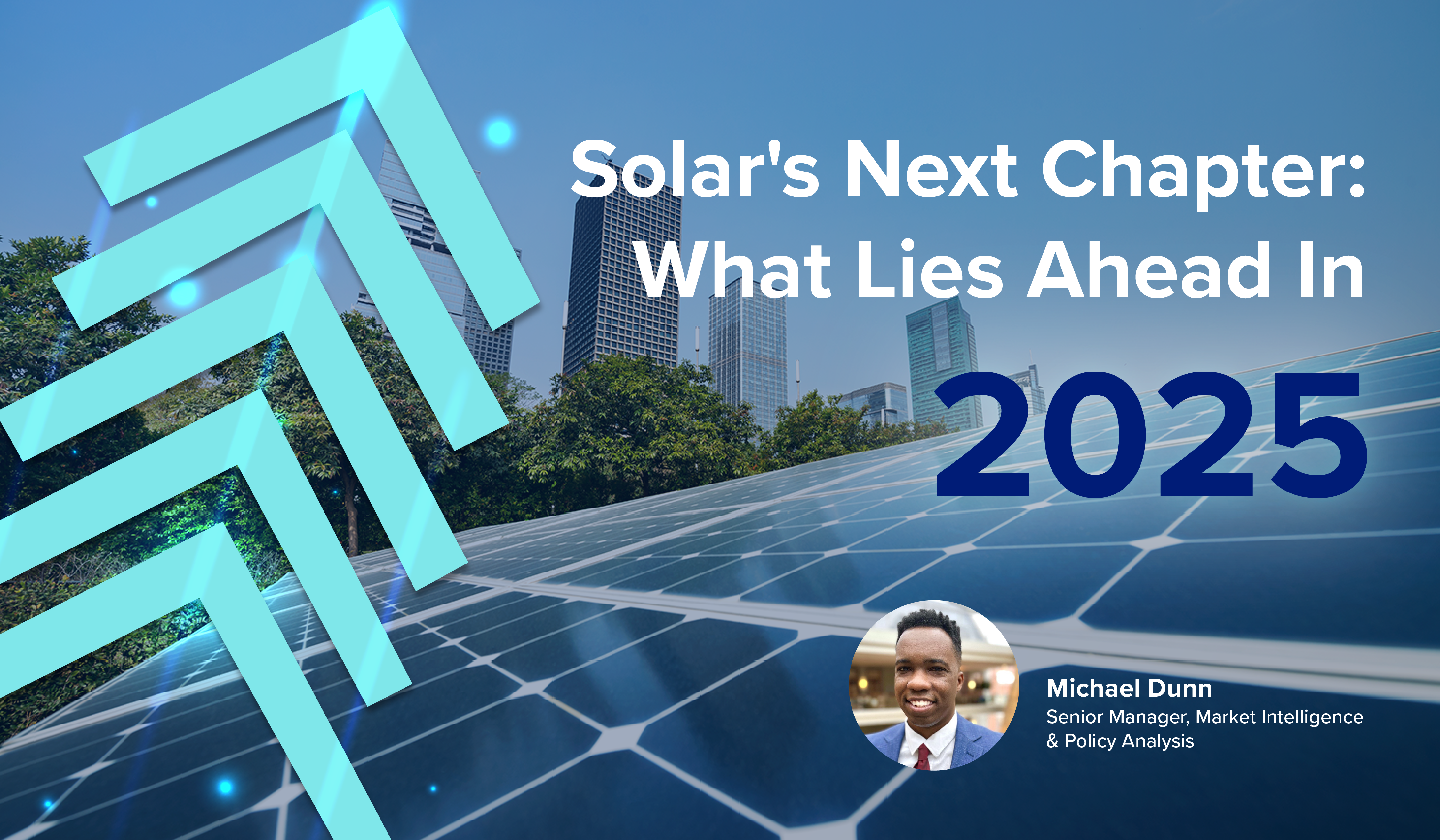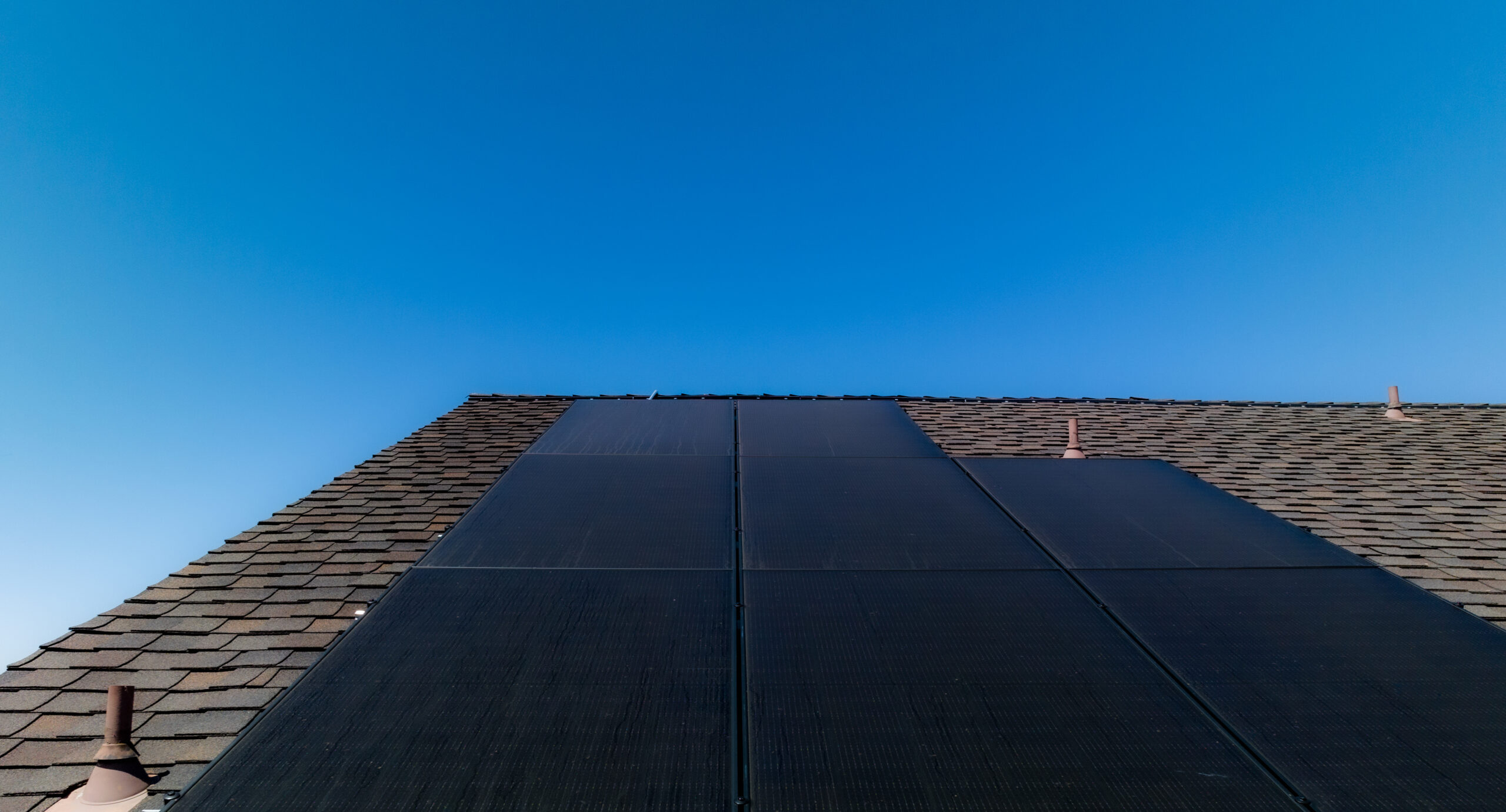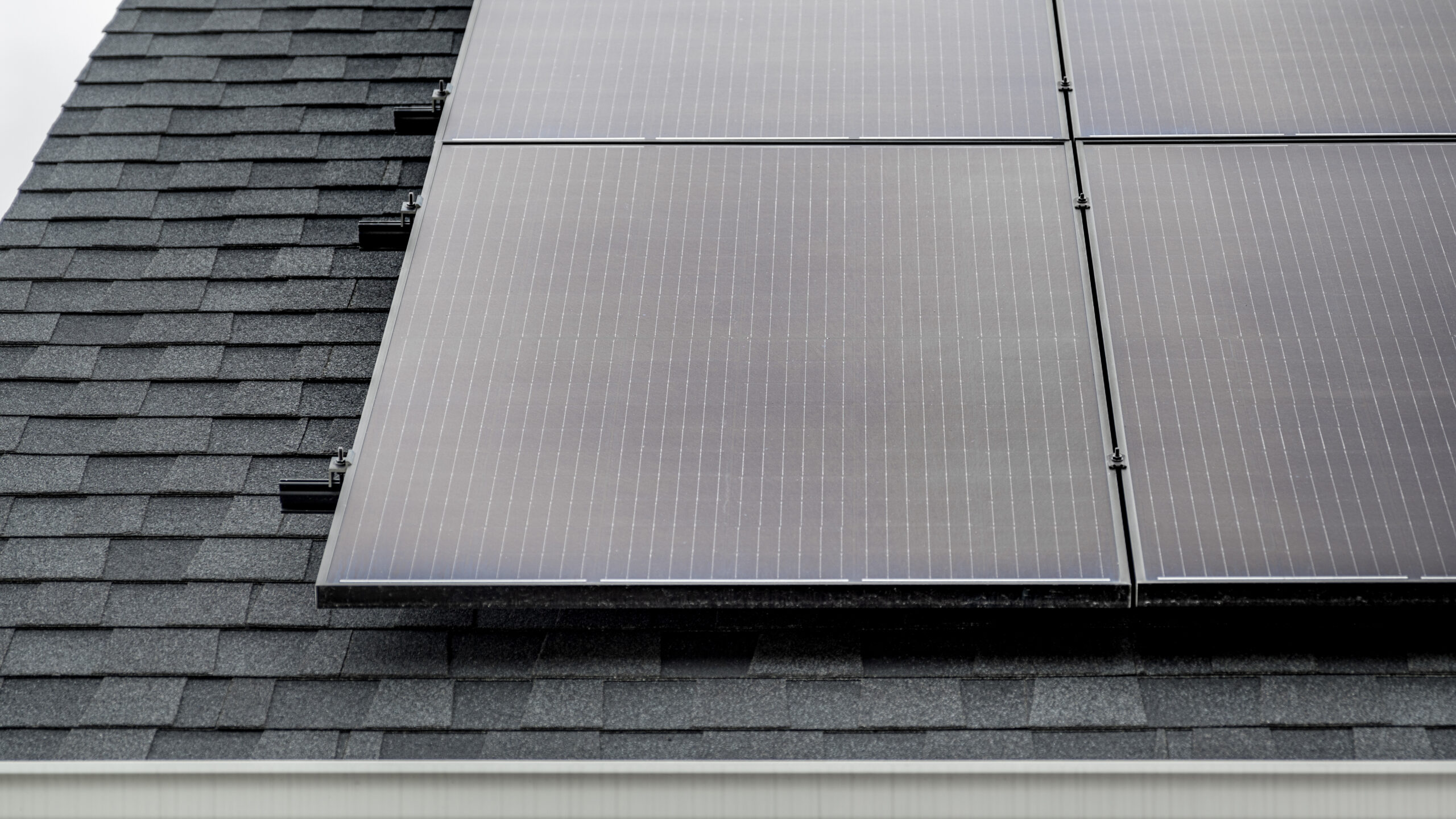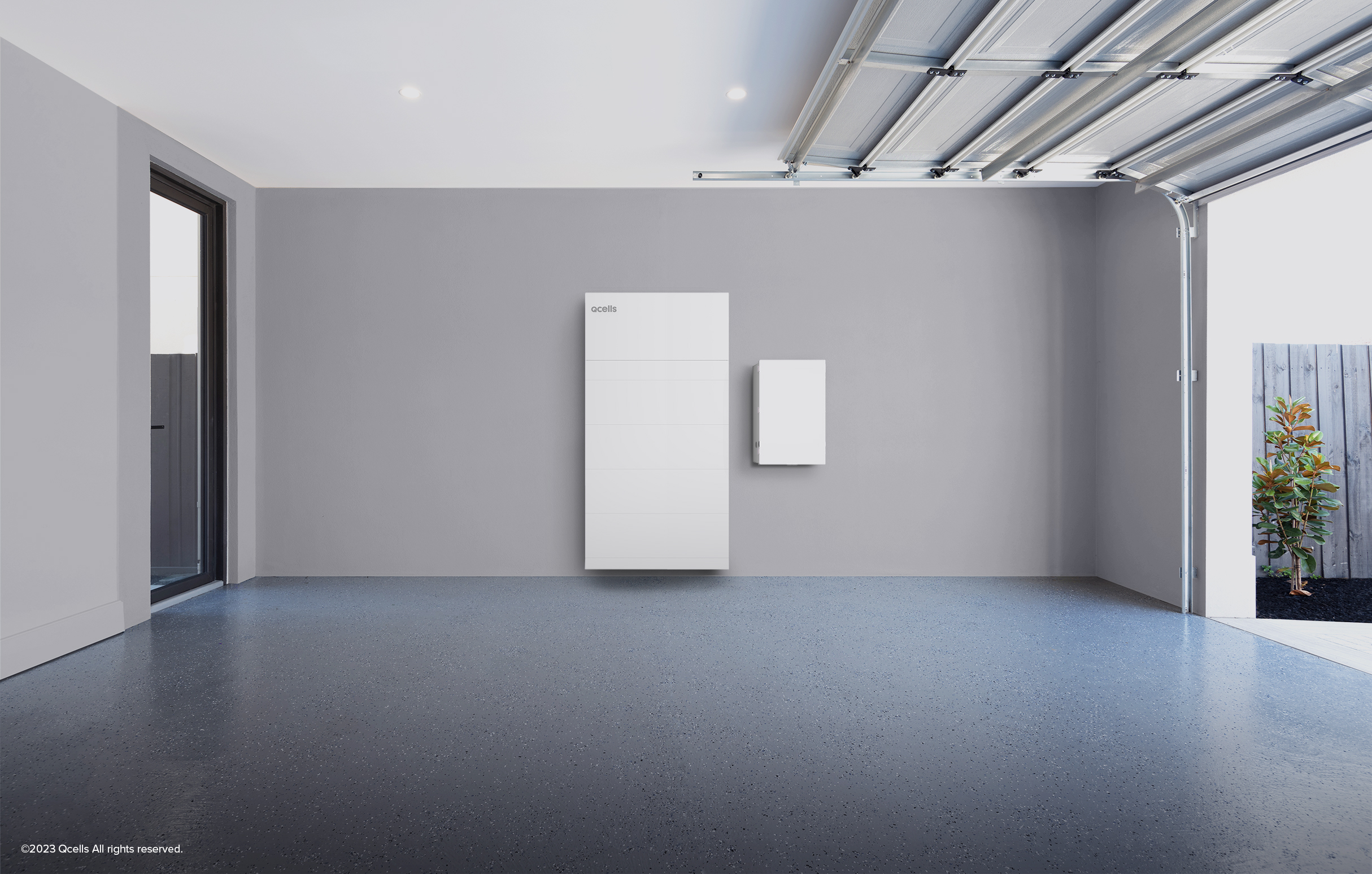Solar panel efficiencies have increased steadily year-on-year for more than a decade. Today, most solar panels on the market have a conversion efficiency rate of over 22%, and typically come with warranties of 10-25 years, and high levels of power output and reliability. When installing a solar system, it is important to know what determines a solar panel’s efficiency, and how higher efficiencies generate more solar energy and provide a greater saving on your utility bill.
What is Solar Panel Efficiency?
Simply, solar panel efficiency is the measure of how much sunlight hits a solar panel and is then converted into usable electricity. Currently, most popular solar panels available on the market have a conversion efficiency of around 22-24%, which means that 22-24% of the solar irradiation (sun’s rays) that are hitting the panel are being converted into solar electricity. While this may sound like a low percentage, this figure is at the upper end of what is possible with current, dominant technology.
The solar panel efficiency is therefore determined by the type of solar cell used, the cell layout, the configuration of the cells, and the overall size of the panel. Many factors interplay inside the solar panel when capturing sunlight, which we will examine below.
Which Type of Solar Panel is Efficient?
A solar panel’s efficiency is primarily determined by its base composition, in most cases its solar cells – which are either made from polycrystalline (sometimes called multicrystalline) or monocrystalline silicon. Monocrystalline silicon cells – those produced by Qcells – offer higher efficiencies because they are produced from pure silicon and therefore have fewer impurities (and a more uniform black color) than cells made with multicrystalline silicon. They also provide more power per square foot, and as the market has adopted this technology in masses, prices have fallen to near parity with multicrystalline. It is the industry-wide adoption of monocrystalline solar panels over the past few years that has helped push solar panel efficiencies higher.
A third type of solar panel is the thin-film solar panel, which uses a completely different composition to achieve the photovoltaic effect. These types of panels are not, however, widely used in rooftop solar installations.
Why Solar Panel Efficiency Matters
If you have limited roof space, it is important to pack in as much solar power generating potential as possible. This is why solar panel efficiency matters. The more efficient a solar panel, the better it is at converting sunlight into electricity, and so the more electricity your panels generate, the better return on investment you achieve.
A solar system using solar panels with a lower efficiency can produce as much power as a system using higher efficiency panels, but you will simply need more of them, which increases costs and the space required.
Factors Affecting Solar Panel Efficiency
There are a number of factors that affect solar panel efficiency. Research and development teams all around the world work for years on developing solar cells of higher and higher efficiencies. This painstaking process is highly technical, but for the end customer it still pays to know how the cells work and how they affect a solar panel’s overall efficiency.
The type of solar cell used plays the biggest role in determining a solar panel’s efficiency. Qcells uses monocrystalline cells to produce efficiencies of 22% or more. These cells offer a sleek, uniform black aesthetic that assists the conversion process, boosting the amount of sunlight that can be turned into solar electricity.
Other techniques and processes that boost solar panel efficiency include using half cells, whereby a solar cell is simply cut in half, resulting in a reduction in the current flowing through the cell which, in turn, helps lower resistive losses, meaning a boost for efficiency. Solar panels comprised of half-cells also perform better under shaded conditions.
Solar panels that have small gaps between the cells can also boast higher efficiencies, especially when paired with round interconnection wires that reflect less of the sunlight away from the cell when compared to flat ribbon-style interconnection wires.
Other factors affecting solar panel efficiency include the type of inverter used, solar cell temperature (cells that are too hot exhibit a reduction in efficiency) and even the layout of the system.
Solar Panel Design
A solar panel’s efficiency can be influenced by the solar panel design. A solar panel that uses half cells will be more efficient than a solar panel that uses full cells, due to lower currents in the cells leading to lower resistive losses – which boosts conversion efficiency.
The color of the backsheet – the protective layer at the rearside of a solar panel – also determines solar panel efficiency. Black backsheets for example, which are used primarily for their aesthetics in offering a more uniform color, actually reduce efficiency slightly because black absorbs more sunlight than white or other colors. A black backsheet will also absorb more heat, making the solar panel warmer and, again, contributing to slightly reduced efficiency.
Temperature
Solar panels perform optimally in direct sunlight and within an ideal temperature range. A solar panel that is too hot will lose efficiency. Within the industry, solar experts agree that the optimum temperature range for peak solar panel performance is 25 °C or 77 °F. For every degree Celsius above this temperature, a solar panel will lose about 0.3% to 0.5% efficiency because in really hot temperatures, the electrons inside a solar cell can behave erratically, reducing voltage. The other electrical components inside a solar panel are also affected by high temperatures.
In fact, solar panels are more efficient in cold weather. A cold, bright day is the perfect condition for a solar panel. That said, colder daysare typically associated with shorter days, and less sunny, so solar panels still tend to make more sense in warmer climates where the days are longer, and the sun shines more regularly.
Positioning and Angle
Solar panels perform better when their positioning and angle is set in a way that best optimizes their access to uninterrupted sunlight. However, some environmental factors can influence what is the most optimal position and angle.
In the United States, it is best to have solar panels facing true south for peak sun exposure. True south differs from magnetic south, where a compass indicates south. Instead, true south for solar panels means the panel faces toward the geographic south, meaning they are directed toward the South Pole.
If true south isn’t possible for your home, having the panels face east or west (or even both east AND west) is also acceptable, though there is a slight decrease in system efficiency. We don’t recommend facing your solar panels to the north, as this direction leads to a significant decline in the panels’ efficiency.
Shade
Solar panels that are shaded will produce less solar electricity. Solar panels produce energy whenever there is daylight – which means that they also work on cloudy days – but they perform most efficiently during clear, bright and sunny days.
Shadows from other neighboring objects can also affect a solar panel’s output, which is why installers should take this potential shadow fall into consideration when planning your rooftop solar system.
Solar panels that have half cells perform better in shaded conditions because, thanks to the way the cells are interconnected, these solar panels are essentially split into two parts, so a shadow will only affect one half of the panel and not the other.
Special inverter technology called Module Level Power Electronics (MLPE) can also be installed on to solar panels to help boost performance, even in shaded conditions. This technology includes microinverters and power optimizers. MLPE operates by ensuring that each solar panel operates at its most optimal capacity, and can do so without impacting the rest of the interconnected system. Which means that if one solar panel in a system of 20 is in the shade, the other 19 are not unduly affected.
How to Check Solar Panel Efficiency
Calculate Theoretical Efficiency
The theoretical efficiency of a solar panel is higher than the actual efficiency, and reaches around 33%. Current solar panels cannot effectively achieve this rate. However, this calculation can be useful for installers when planning a solar system. To calculate theoretical efficiency, maximum power output (sometimes as high as 500 W) is divided by rated power (typically listed in watts on the panel’s datasheet) multiplied by 100.
Calculate Actual Efficiency
Actual efficiency of most solar panels on the market today is usually between 22-25%. This is calculated by dividing measured power output (voltage x current) with rated power, then multiplying by 100.
Compare Theoretical and Actual Efficiency
Comparing theoretical and actual efficiency of your solar panel can be useful in helping to determine the overall output of your solar system. A solar panel with higher actual efficiency is less likely to be negatively impacted by shading, soiling, high temperatures or other external factors that can reduce the performance of a solar panel.
Why Aren’t Solar Panels 100% Efficient?
To reach 100% efficiency, solar panels would have to be able to convert all sunlight into electrical energy. This is simply not possible due to the fact that the sun’s rays dissipate in all sorts of ways. Modern solar panels do a very good job of harvesting up to 25% of the solar spectrum into electricity, with newer next-generation panels able to push those efficiencies up to 30% and beyond.
Contact Us
If you are interested in installing Qcells solar panels on your home or have questions about solar energy, our team is here to help. We are dedicated to developing high-quality solar panels, providing outstanding solar solutions, and delivering exceptional customer service because we understand the importance of switching to clean energy and how it can positively impact the environment.
Feel free to browse our complete solar energy solutions, including solar panels, home energy storage, and energy management, or contact us to discuss designing and installing a customized home solar panel system. You can also contact Qcells for any solar questions you may have.





 USA & Canada
USA & Canada Korea
Korea Germany
Germany United Kingdom
United Kingdom France
France Italy
Italy Netherlands
Netherlands Greece
Greece Poland
Poland Portugal
Portugal Hungary
Hungary Spain
Spain Japan
Japan